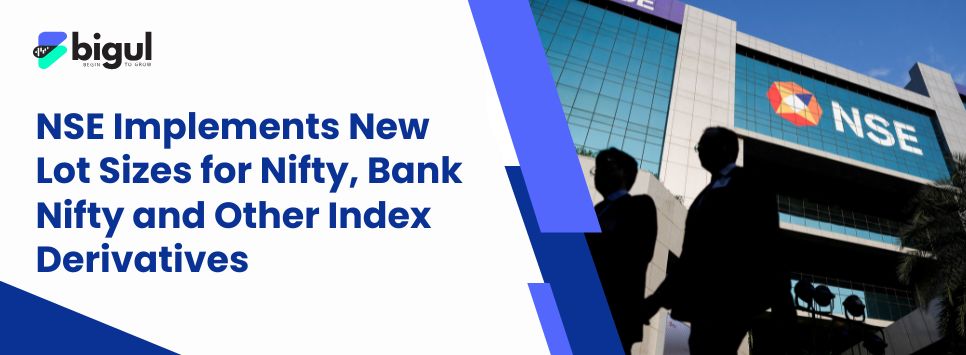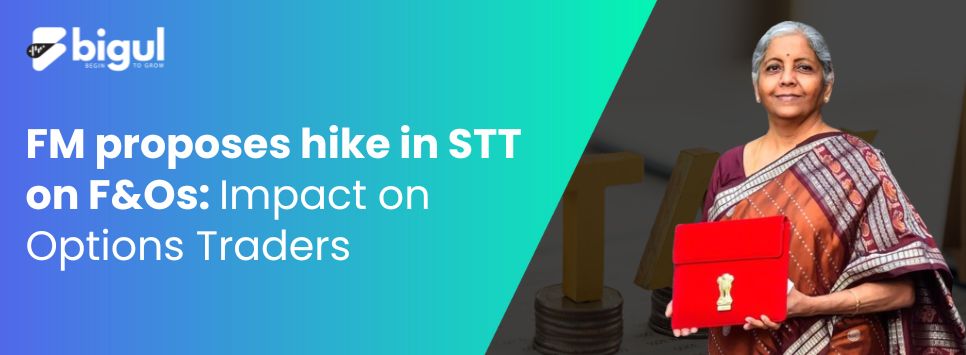Finance Minister Nirmala Sitharaman has proposed an increase in the securities transaction tax (STT) on futures and options (F&O) trades to possibly discourage retail investors from participating in these risky instruments. The proposed hike is aimed at reducing speculative trading in the stock market.
Also Read | Union Budget 2024: Is it a Growth-Driven Budget Or Not?
Proposal on STT increase in F&O Trading
In her Union Budget speech which was held on Tuesday 23 July, Sitharaman announced that the rate of STT on the sale of an option in securities would increase from 0.0625% to 0.1% of the option premium. Similarly, the STT on the sale of futures in securities would rise from 0.0125% to 0.02% of the traded price.
Concerns Raised by Economic Survey
The Economic Survey flagged concerns over the rising interest of retail investors in derivative trading. It pointed out that speculative trading has no place in a developing country and suggested that the increase in retail investor participation in F&O trading is driven by gambling instincts. The survey noted that derivatives trading holds the potential for outsized gains, which cater to these instincts and can augment income if profitable.
Warnings from Regulatory Authorities
Recently, Sebi chief Madhabi Puri Buch cautioned investors against making heavy bets on F&O. Before her, Sitharaman and Chief Economic Adviser V. Anantha Nageswaran had also flagged the growing risk of F&O trading for retail investors. Market experts believe that while F&O trading continues to grow in popularity due to the potential for profit and rising trading volumes, investors who lack understanding or risk appetite should avoid derivatives trading.
Popularity and Risks of F&O Trading
The huge popularity of F&O is evident as the monthly turnover of the F&O segment has surged to Rs 8,740 lakh crore in March 2024 as compared to Rs 217 lakh crore in March 2019. The average daily turnover in the equity cash segment was Rs 1 lakh crore, while the average daily turnover in the F&O segment was about Rs 330 lakh crore. Futures and options trading involve contracts that derive their value from an underlying asset, such as stocks or commodities. These financial instruments are used for hedging risks, speculating on price movements, and arbitraging price differences. However, they come with significant risks, including leverage risk and market volatility, which can lead to substantial losses.
Impact on Retail Investors
Despite its growth, F&O trading is largely being utilized as a speculative tool for quick profits in the stock market. However, most retail investors are losing money. A study conducted by the Sebi reported that 89% of retail traders in the equity F&O segment suffered losses, with average losses of Rs 1.1 lakh in FY22. Additionally, there was an exponential increase in F&O segment participation during the pandemic, with the total number of unique individual traders increasing by over 500% from 7.1 lakh in FY19 to 45.24 lakh in FY21.
Regulatory Actions
Sebi has been compelled to warn against speculative bets in the F&O segment due to its impact on the broader economy. Household financial savings are being diverted into such speculative bets rather than used for capital formation, and many young investors have lost huge amounts of money in such trades. Last month, the Sebi board approved stricter norms for the entry of individual stocks in the derivatives segment, saying it would weed out stocks which have consistently low turnover from the F&O segment of bourses.
Also Read | Union Budget 2024-25: Towards a Resilient and Prosperous India




.jpg)





.jpg)
